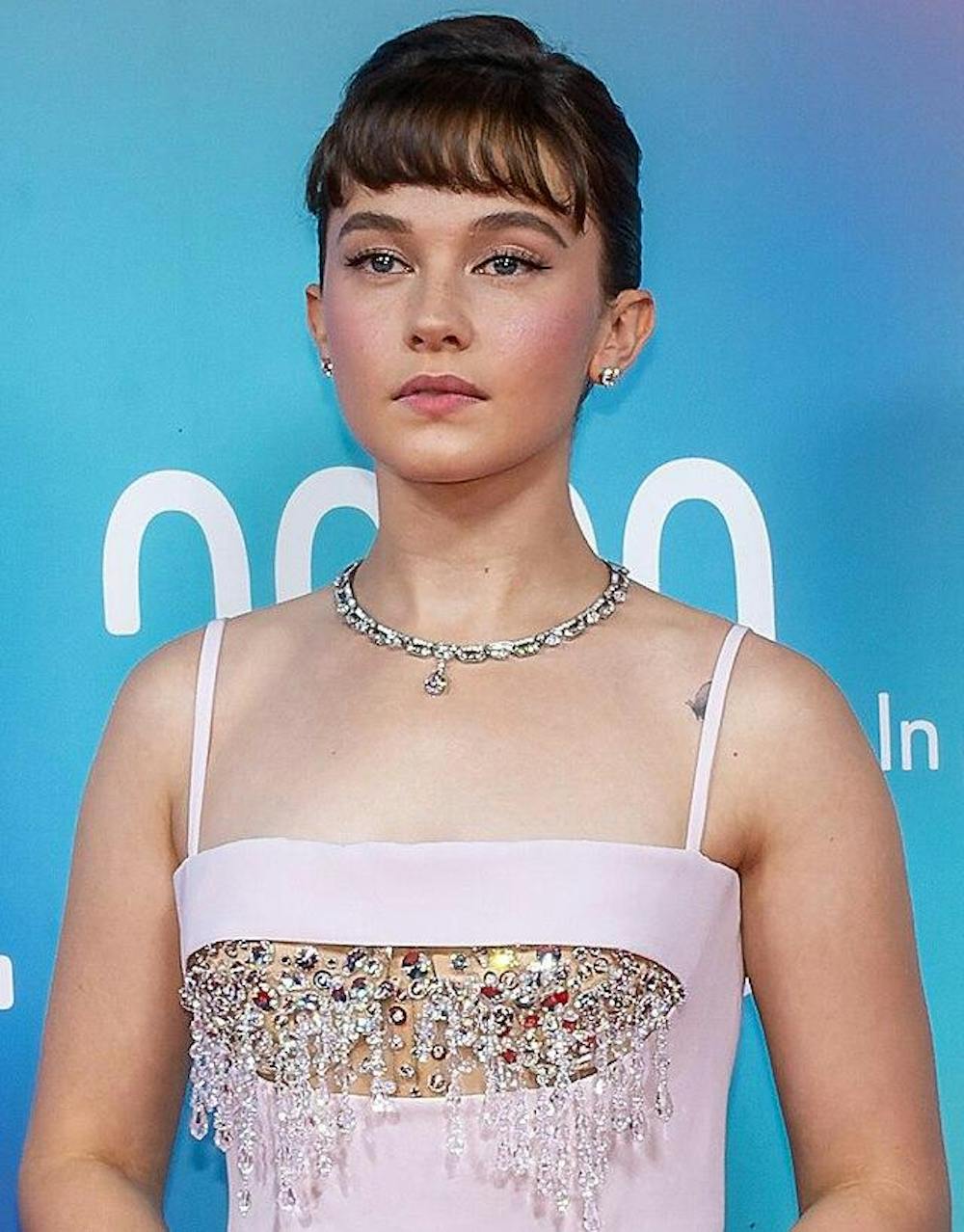The Presley dynasty has captivated the public’s mind for the last two years, and this month’s premiere of “Priscilla” indicates that this prominence is not going to fade any time soon. Initiated by the release of Baz Luhrmann’s “Elvis” in 2022, this revitalized infatuation with Elvis has retrospectively amplified interest in the relationship between him and his ex-wife Priscilla. However, where Luhrmann’s film is a flashy biopic that casts her off as a minor character, “Priscilla” is a beautifully subdued and empathetic depiction of her coming of age and falling in love with a larger-than-life musical icon.
Based on Priscilla Presley’s memoir “Elvis and Me,” this newest film from director Sofia Coppola tells the story of their rocky relationship entirely from Priscilla’s perspective, looking past the glitz and the glamor and showcasing what took place behind closed doors and away from the public eye.
The story begins when a 14-year-old Priscilla Beaulieu, played by Cailee Spaeny, meets a 24-year-old Elvis Presley, played by Jacob Elordi, in Germany on a U.S. military base in 1959. In its first few scenes, the film establishes that the pair’s romance was imbalanced from the start, with the much older and incredibly influential Elvis preying on Priscilla’s naivety.
The film concentrates on this aspect heavily, illustrating how young Priscilla was throughout the relationship by relishing in her girlhood with feminine iconography from the time period. Montages of makeup compacts, pink sweaters and silk ribbons, coca-cola bottles, doodled-in diaries and saddle shoes — all accompanied with songs from a perfectly curated soundtrack of 60s hits — transport the audience into the world of mid-century American adolescents, but more importantly, the mind of a teenage Priscilla.
An auteur known for her ability to cinematically represent girlhood with admiration and deep understanding, Coppola’s skilled use of motifs, soft hues and wide lingering shots present in her other projects — like “The Virgin Suicides” and “Marie Antoinette” — astound in this film as well, building an ambiance that underscores the performance of its lead.
Spaeny’s portrayal of Priscilla is both enthralling and stunningly understated. Depicting Priscilla from ages 14 to 27, Spaeny seamlessly embodies all that Priscilla experiences throughout the relationship, displaying the burgeoning feelings of first love during their courtship in Germany and later the loneliness and frustration experienced while living in Graceland — the Presley estate in Tennessee.
While Priscilla spends a good portion of the movie alone, filling her days spent in their luxurious property with mundane tasks, Spaeny’s performance does not allow for a dull moment. With every scene the audience learns more about who Priscilla was while with Elvis through Spaeny’s subtle yet expressive re-enactment of the events written about in the memoir, making for a truly commendable performance.
The fashion and the stylings of Priscilla’s hair and makeup play a part in communicating the passage of time, but it is Spaeny’s acting that conveys Priscilla’s progression of identity, shapeshifting to represent the many different stages of her relationship with Elvis and who she became within them.
What makes the blissful ups and the distressing downs of the two’s relationship so emotive is Spaeny and Elordi’s palpable chemistry. Alluring when they share the screen, the pair make the moments they’re acting out feel deeply intimate, representing the couple with gravity and sensibility.
Elordi’s performance as Elvis perfectly compliments Spaeny’s, serving to show the late performer through Priscilla’s eyes. While charming in the beginning, he transforms into someone darker and controlling as the film progresses, revealing to Priscilla — and the audience — that he's a different person away from the flashing cameras and crowds of screaming fans.
Completed with a convincing impression of Elvis’ iconic voice and movements, Elordi’s interpretation of the singer feels authentic because it does not rely on spectacle, serving to humanize the singer and his faults instead of glorifying them.
A cinematic and bittersweet exploration of one of the most iconic couples in music, “Priscilla” brings an unexamined perspective on the thirteen-year-long relationship to the big screen. Blending her contemporary filmmaking style with vintage aesthetics, Sofia Coppola makes both the extremities and mundanities of Priscilla Presley’s unique circumstance feel within reach, empathetically displaying the troubles of growing up and first love.







